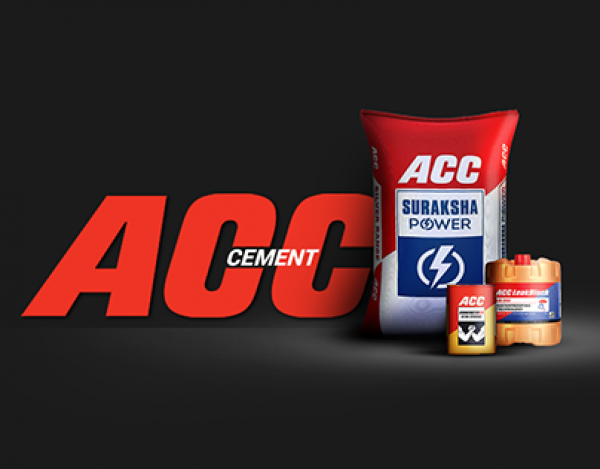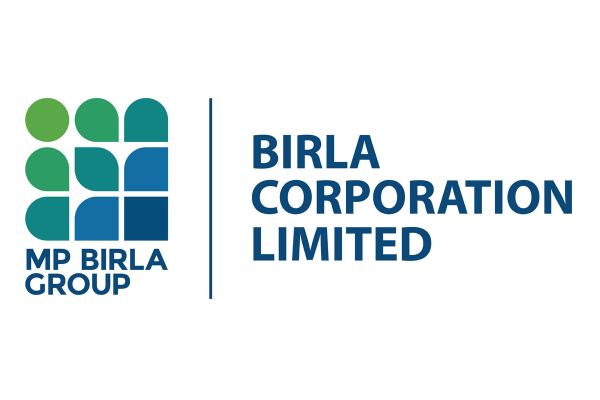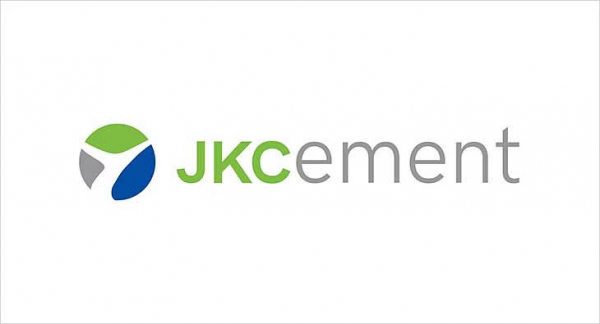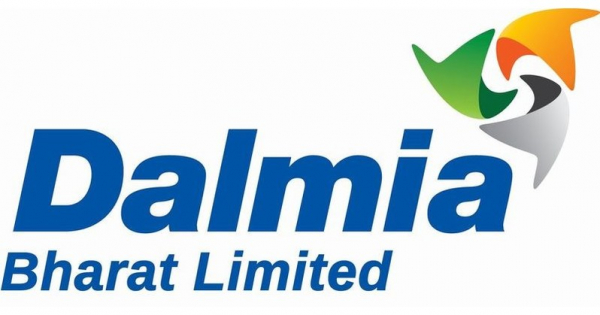Best Cement Stocks to Consider for Your Investment Strategy
- by B2B Desk 2024-08-01 14:06:34
Cement sector stocks represent companies involved in producing, distributing, and selling cement. These stocks include some of the industry's biggest and most recognized names, like LafargeHolcim, Cemex, and HeidelbergCement. The performance of these stocks is closely tied to economic conditions, especially fluctuations in construction activity.
Today, investing in cement sector stocks can offer a cost-effective way to gain exposure to this growing industry. Investors can choose to buy individual stocks from this sector or opt for mutual funds or exchange-traded funds (ETFs) that focus on the cement industry.
Cement Industry in India
The Indian cement industry is cyclical and closely tied to the construction sector. The demand for cement is directly linked to construction activities, making the industry susceptible to economic downturns.
Despite this, the industry has seen steady growth driven by increasing infrastructure development and urbanization. The sector is quite fragmented, with numerous small and mid-sized companies operating alongside large multinational corporations.
Investing in cement company shares can offer exposure to a vital part of the Indian economy. These shares have the potential for long-term growth as the demand for infrastructure and construction projects continues to rise. Here are the best cements stocks to invest in 2024.
ACC

Founded in 1936, ACC is a prominent player in India's building materials industry, with manufacturing and marketing operations spanning the country. It operates 18 cement plants and over 82 ready-mixed concrete plants, bolstered by a skilled workforce, extensive distribution channels, and numerous sales offices.
ACC's product lineup includes the Gold and Silver ranges, known for their superior quality catering to various construction needs. Additionally, its ready-mixed concrete solutions address both basic requirements and high-grade demands for tall structures. The company has contributed to iconic landmarks such as the Bhakra Nangal Dam and the Mumbai-Pune Expressway.
In 2022, ACC became part of the Adani Group, further diversifying its portfolio of sustainable businesses. The company's manufacturing units are supported by a central technology support services center, a unique feature in the Indian cement industry. For investors, ACC represents a noteworthy option in the cement stocks market, reflecting a blend of historical significance and modern innovation in the sector.
Shree Cement Ltd

Shree Cement Ltd. stands out as a top cement stocks option in India, operating plants in Rajasthan, Uttarakhand, Bihar, and Haryana. With an annual production capacity exceeding 44 million tonnes, the company is renowned for its high-quality cement products. Shree Cement's offerings are extensively used in significant infrastructure projects, including highways, airports, and ports, making it a prime choice for investors.
Birla Corporation Ltd

Birla Corporation Limited is a diversified holding company producing cement, jute goods, PVC floor coverings, auto trims, and steel castings. With 11 manufacturing units across eight locations, it is a key player in India's cement industry, providing comprehensive construction solutions. Its diverse product range and substantial contribution to infrastructure projects place it among the best cement stocks in India.
JK Cement Ltd

JK Cement Ltd is a prominent Indian cement manufacturer celebrated for its high-quality products and significant presence in both domestic and international markets. Renowned for its innovation and sustainable practices, JK Cement is also the second-largest wall putty manufacturer in India. The company's commitment to excellence and sustainability has cemented its reputation as a leader in the industry, making it a top choice for investors looking at Nifty cement stocks.
UltraTech Cement Ltd

UltraTech Cement Ltd, a key player in the Indian cement industry and part of the Aditya Birla Group, boasts a production capacity of over 116 million tonnes per annum. The company operates 20 integrated plants, 26 grinding units, and 7 bulk terminals, making it one of the most extensive cement producers in the country. UltraTech's high-quality cement is widely used in major infrastructure and construction projects, including highways, airports, dams, and residential buildings. The company’s dedication to innovation and sustainability makes it a top choice for investors considering cement stocks.
Grasim Industries Ltd

Grasim Industries Ltd, the flagship company of the Aditya Birla Group, operates through its subsidiary UltraTech Cement Ltd., which boasts a production capacity of over 116 million tonnes per annum. Beyond cement, Grasim has a diverse portfolio that includes viscose staple fiber, viscose filament yarn, chemicals, and textiles. This diversification not only strengthens its market position but also makes it a resilient and versatile player in the Indian industry. Grasim's commitment to excellence across multiple sectors highlights its pivotal role in the Aditya Birla Group's overall success.
Dalmia Bharat

Founded in 1939 and headquartered in New Delhi, Dalmia Cement stands as a prominent figure in the Indian cement industry. Operating 15 plants across 10 states, the company boasts an impressive annual production capacity of 44.6 million metric tons of cement.
Dalmia Cement's extensive distribution network spans over 22 states, supported by a vast array of dealers and sub-dealers. The company actively pursues growth through both acquisitions and greenfield expansions. Its diverse product portfolio is marketed under three primary brands: Dalmia Cement, Dalmia DSP, and Konark Cement.
A pioneer in sustainable practices, Dalmia Cement is committed to enhancing value for all stakeholders. It currently operates at 14 times water positivity relative to its usage and aims to increase this to 20 times by 2025. Additionally, Dalmia Cement has achieved the lowest carbon footprint in the global cement industry, as recognized by the Carbon Disclosure Project.
Key Considerations Before Investing in Cement Stocks in India
Market Demand
Understand the correlation between economic growth and cement demand. Increased construction activity typically drives higher cement consumption, while economic downturns or reduced construction projects can lead to decreased demand.
Raw Material Costs and Supply Chain
Monitor the prices of essential raw materials, such as limestone, which are crucial for cement production. Rising material costs or supply chain disruptions can impact profit margins and should be factored into your investment decision.
Financial Health
Evaluate the financial stability of cement companies by examining their sales performance, cost management, and profitability. Strong financial metrics often indicate a promising investment opportunity.
Industry Competition
Consider the competitive landscape within the cement industry. The presence of numerous competitors can influence pricing and market share. Innovations from new entrants or aggressive strategies by existing players can impact established companies’ performance.
Technological Innovation
Stay informed about technological advancements in the cement industry. Companies that adopt new, more efficient, or environmentally friendly technologies may have a competitive edge and potential for long-term success.
Environmental Compliance
Be aware of environmental regulations that affect cement production. Companies investing in sustainable practices and complying with stricter environmental standards may be better positioned for future growth and profitability.
Factors Influencing Cement Stock Prices
Economic Growth
The overall economic environment impacts cement stock prices. A growing economy typically results in more infrastructure projects and higher demand for cement, which can positively affect stock values, whereas economic slowdowns may have the opposite effect.
Construction Activity
Cement stock prices are heavily influenced by the level of construction activity. Increased construction projects drive up demand for cement, potentially boosting stock values, while a slowdown can lead to lower demand and affect stock performance.
Raw Material Costs
The cost of raw materials such as limestone and gypsum directly affects cement production expenses. Variations in these costs can influence profit margins and, consequently, the stock prices of cement companies.
Energy Prices
Energy costs, including those for coal and electricity, are a significant portion of cement production expenses. Fluctuations in energy prices can impact the profitability of cement companies and, in turn, their stock prices.
Environmental Regulations
Compliance with environmental regulations can affect operational costs and profitability. Shifts in regulatory requirements may require investment in new technologies or practices, which can impact cement stock performance.
Trade Policies and Tariffs
Changes in trade policies and tariffs can influence the costs of importing and exporting cement. These adjustments can affect a company’s profitability and impact the performance of cement stocks.
Foreign Exchange Rates
Fluctuations in foreign exchange rates can affect the cost of importing raw materials and equipment. Changes in currency values can impact the profitability of cement companies, especially those with significant international dealings.
The Bottom Line
Investing in cement stocks can be a wise decision, given their crucial role in infrastructure development. Cement companies are foundational to the construction sector, making them strong candidates for long-term investment opportunities.
To make informed decisions, it's essential to stay well-informed and conduct comprehensive research. Understanding industry trends, economic factors, and company-specific metrics can help you capitalize on growth prospects. Additionally, keeping an eye on regulatory changes and technological advancements can provide further insight into potential investment returns.
With a dynamic and growing market, the cement industry in India offers various opportunities for savvy investors. By focusing on companies with solid financial performance and strategic growth plans, you can position yourself to benefit from the sector's ongoing expansion and success.
FAQs
Q. Should I invest in cement?
A. Cement stocks can be a valuable addition to a portfolio for several reasons. The cement industry has significant growth potential that can translate to stock price appreciation. Cement stocks can provide stability within a portfolio due to the relatively stable demand for cement.
Q. Who is India's No. 1 cement?
A. UltraTech Cement is the number one cement in India. It was founded as L&T Cement but became UltraTech Cement after being acquired by Grasim Industries, part of the Aditya Birla Group, in 2004. UltraTech is India's largest manufacturer of grey cement, ready-mix, and white cement.
Q. Which cement company did Adani buy?
A. The Adani group acquired control of Ambuja Cements in September 2022 from the former promoters Holcim group.
Q. Which cement has highest market share?
A. UltraTech Cement is the market leader in India's cement industry. As of fiscal year 2020, it accounted for a 31 percent share of the Indian cement market. UltraTech Cement is based in Mumbai and is a subsidiary of the Indian multinational conglomerate, Aditya Birla Group.
Also Read: Top High Dividend Paying Stocks to Boost Your Portfolio
POPULAR POSTS
Best Silver Investment Platforms for 2025: From CFDs to Digital Vaults Explained
by Shan, 2025-10-23 12:22:46
Best Investment Plans in India for 2025: A Complete Guide to Grow and Protect Your Wealth
by Shan, 2025-09-18 10:20:46
Which venture capital firms are the most active in funding Indian startups in 2025
by Shan, 2025-08-06 10:42:11
Top 5 Apps to Buy Digital Gold in India (2025): Safe, Simple & Secure
by Shan, 2025-08-01 10:24:51
10 Highest Dividend Yield Stocks in August 2025
by Shan, 2025-07-28 09:31:02
Exchange-Traded Fund (ETF): A Practical Guide to Smart Investing
by Anmol Chitransh, 2025-04-17 10:18:20
The Ultimate Guide to Commodity Trading: Strategies, Risks, and Opportunities
by Anmol Chitransh, 2025-04-02 07:06:01
RECENTLY PUBLISHED

Loan EMIs to Drop as RBI Slashes Repo Rate - Full MPC December 2025 Highlights
- by Shan, 2025-12-05 11:49:44

The Agentic Revolution: Why Salesforce Is Betting Its Future on AI Agents
- by Shan, 2025-11-05 10:29:23

Pine Labs IPO 2025: Listing Date, Grey Market Premium, and Expert Outlook
- by Shan, 2025-11-05 09:57:07

Top 10 Insurance Companies in India 2026: Life, Health, and General Insurance Leaders Explained
- by Shan, 2025-10-30 10:06:42

OpenAI Offers ChatGPT Go Free in India: What’s Behind This Big AI Giveaway?
- by Shan, 2025-10-28 12:19:11





 Subscribe now
Subscribe now 